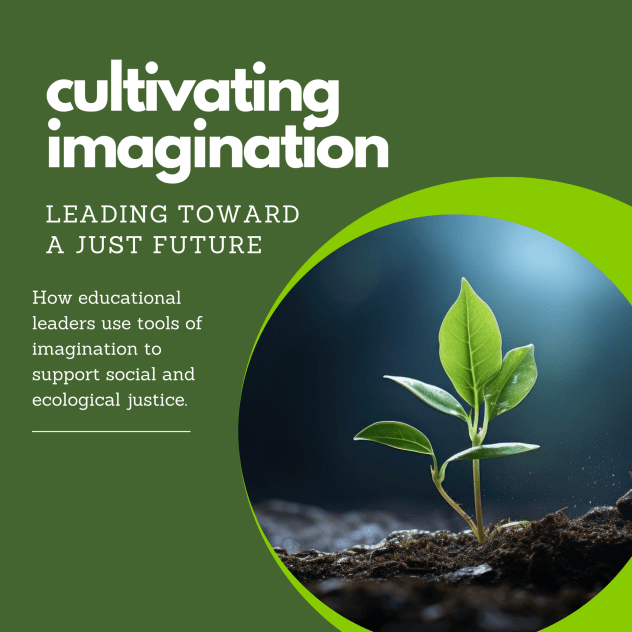By Moraima Machado, San Lorenzo Unified School District and Myra Quadros Meis, San Francisco Unified School District
 This blog is an extension of Episode 4 of the Cultivating Imagination podcast.
This blog is an extension of Episode 4 of the Cultivating Imagination podcast.
In education, imagination is essential. Imagination is the capacity we have as humans to imagine new possibilities. To create and re-create is to re-construct reality. As a site leader, there is consistently a set of demands to maintain the system. Principals are accountable to many stakeholders and usually get stuck in the bureaucracy of the organizational system. This bureaucratic educational system resists imagination. However, we believe that social justice leaders can only move a social justice agenda with the fertile soil of imagination. The practice of imagination encompasses giving voice to the voiceless, moving left when others are moving right, building brave spaces, and engaging in authentic dialogue with people.
Our work is to use imagination to be culturally responsive, justice-forward school leaders and center the stories and voices of all students. We work to interrupt systems of oppression and partner with those closest to the systemic issues we want to improve and transform (Guajardo et.al, 2016). We believe we can rethink and reimagine the educational systems that often perpetuate disparities for our most marginalized students.
Dr. Myra Quadros Meis and Dr. Moraima Machado are current school principals in Bay Area, California schools. We participated in the East Carolina doctoral program together and completed two participatory action research (PAR) dissertations centered on student and family engagement. Using Community Learning Exchange protocols, we facilitated Student and Family Wisdom Circles.
Myra Quadros Meis co-facilitated a student and family wisdom circle with four school leaders. We brought together Black families from three schools, and using community learning exchange protocols, we were able to authentically listen to their experience as minoritized, “those who have been historically marginalized in school and society” (Khalifa, 2018, p. 2), populations in the schools. The event built relationships between the school staff and Black students and families and provided stories to corroborate how Black students are experiencing school. As a result, school leaders developed action plans towards becoming more culturally responsive transformative school leaders.
Moraima Machado partnered with teachers, families, and a community member to co-develop a storytelling curriculum. We investigated how to center the voices of Students of Color in fifth-grade classrooms. In using the community learning exchange protocols, we began to understand how the stories of the families could become an intrinsic part of the curriculum and a learning experience for the students. We concentrated on bringing together families to understand the power of their stories and then meeting to tell our stories. As a result, we learned that listening as a witness is a central pedagogical practice in centering the voices of people of color in classrooms. We also co-designed and implemented a 5th-grade curriculum based on student and family storytelling. Our journey at the school continues as we are now embarking on creating horizontal relationships between teachers and families school-wide.
Guajardo, M., Guajardo, F., Janson, C., & Militello, M. (2016). Reframing community partnerships in education: Uniting the power of place and wisdom of people. Routledge.
Khalifa, M. (2018). Culturally responsive school leadership. Harvard Education Press.
Hear more from our leaders in the Cultivating Imagination podcast series.


